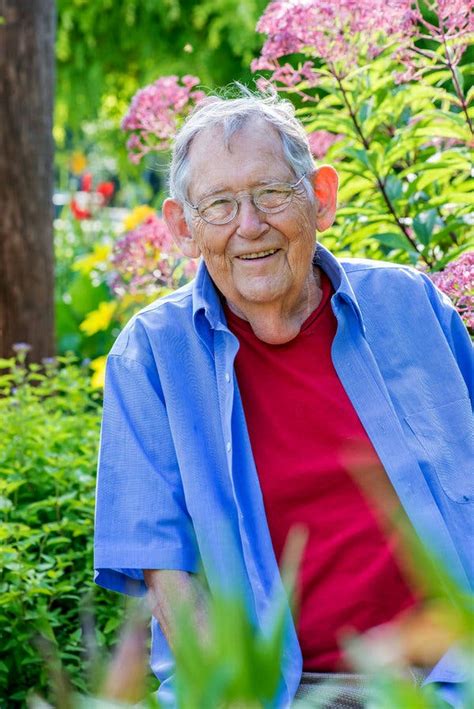A Quote by Oliver Joseph Lodge
Any person without invincible prejudice who had the same experience would come to the same broad conclusion, viz., that things hitherto held impossible do actually occur.
Quote Topics
Related Quotes
One thing has not changed: to doubt the worth of minority students' achievement when they succeed is really only to present another face of the prejudice that would deny them a chance to even try. It is the same prejudice that insists all those destined for success must be cast from the same mold as those who have succeeded before them, a view that experience has already proven a fallacy.
The psyche is the inward experience of the human body, which is essentially the same in all human beings, with the same organs, the same instincts, the same impulses, the same conflicts, the same fears. Out of this common ground have come what Jung has called the archetypes, which are the common ideas of myths.
Show me a person without prejudice of any kind on any subject and I'll show you someone who may be admirably virtuous but is surely no gardener. Prejudice against people is reprehensible, but a healthy set of prejudices is a gardener's best friend. Gardening is complicated, and prejudice simplifies it enormously.
I would have never wanted to write another management book. There are so many of them, and everybody says the same thing about them, and they are all the same - they give the exact same advice. It's like a diet book; they all say eat less calories, exercise more, and every single book has the same conclusion.
If you're a person and care about other people - I don't think I have any sort of special understanding or anything, I think any feeling person would experience similar things if given the same opportunities to see the things I've been lucky enough to see and meet the people I've been lucky enough to meet.
The idea that you live your life in phases - I've never bought that. I feel like I'm the same person who sat in at the draft board in 1965, I'm the same person who joined a fraternity, I'm the same person who got an MFA at Bennington, and I'm the same person who founded Weather Underground. My values are still intact.
You write a book, it's out for however many years, and with the passing of time, you're not the same person. I'm not the same person I was when I wrote those books; I'm not even the same person I was when I started writing 'Beg.' I had many shifts spiritually, and one of them was in the use of language.




































